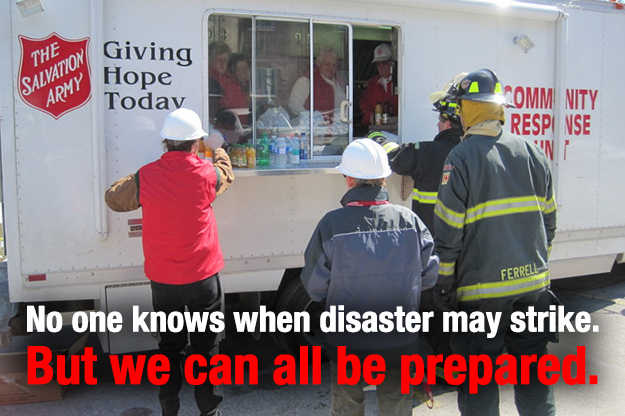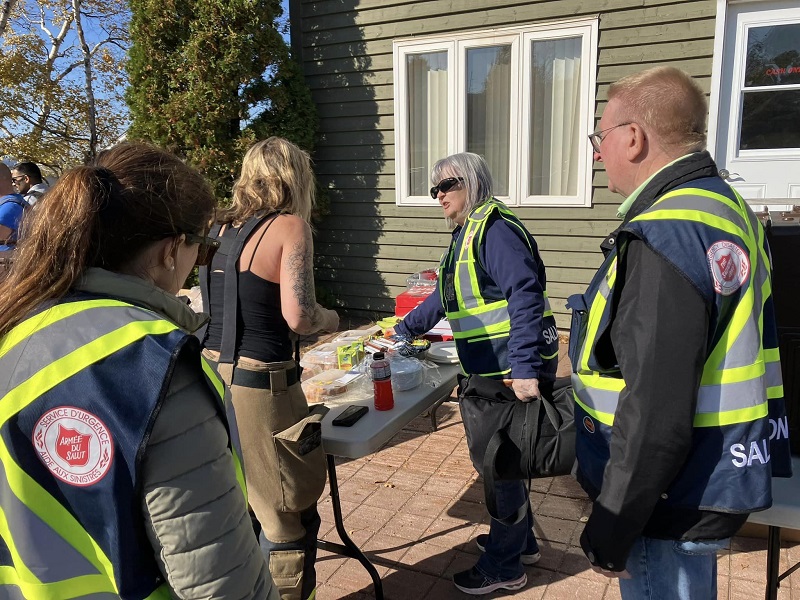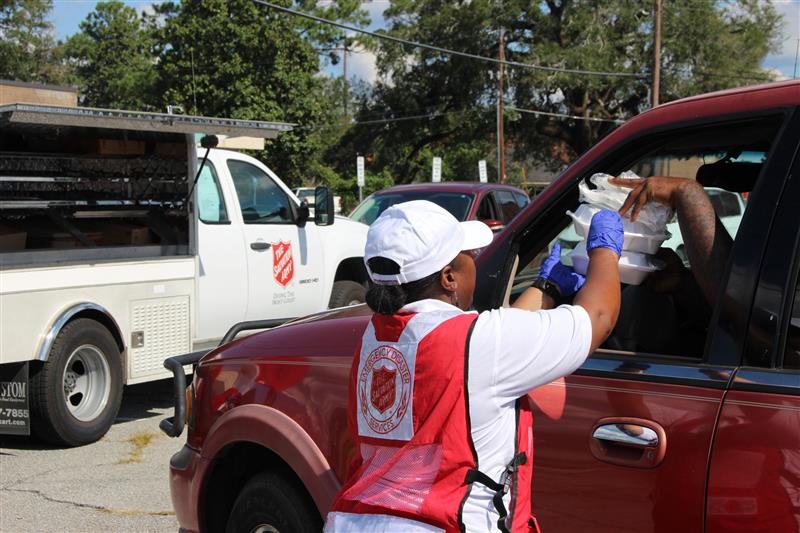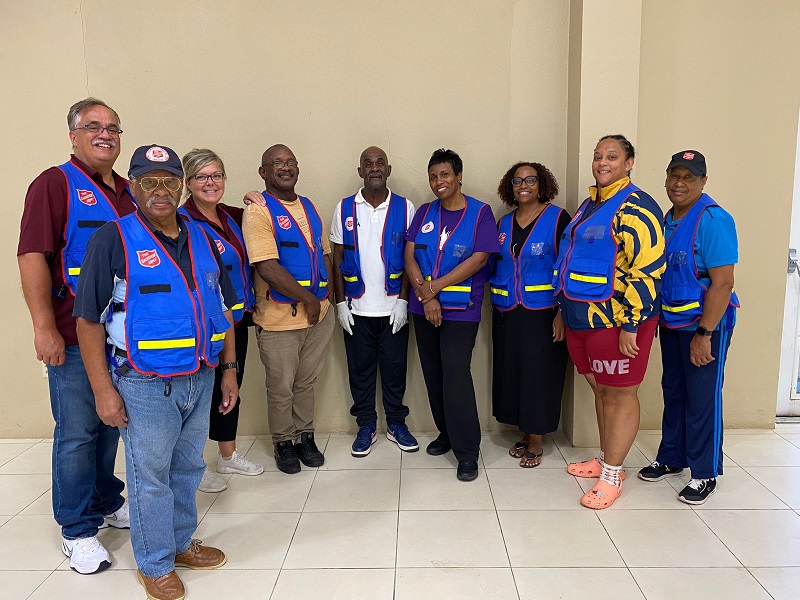Emergency Preparedness Week: Are you prepared?

Emergency Preparedness Week, May 3 to 9, is an opportunity for Canadians to ensure they are prepared for any emergency situation that may arise.
“An emergency can happen at any time and, in many cases, survivors can be better prepared to deal with the aftermath,” says Major Rick Shirran, The Salvation Army’s National Emergency Disaster Services Director.
“No one knows when disaster may strike,” continues Shirran. “But we can all be prepared. And when people are prepared to sustain themselves for at least 72 hours after a disaster, it enables first responders to help those who urgently need it.”
Throughout National Disaster week, many Salvation Army Emergency Response teams and CRUs (community response units)— The Salvation Army’s kitchen on wheels—will participate in various events across the country to inspire Canadians to develop an emergency plan and be better prepared for disasters.
About The Salvation Army’s Emergency Disaster Services
Last year, The Salvation Army in Canada helped 14,000 people when disaster struck.
The Salvation Army has a unique quasi-military structure, enabling them to move into action quickly. Part of the Army’s mission is to supply basic human needs. They are often responsible for counselling, transportation, emergency housing, food or clothing. They take on
the role most needed, as assigned by authorities on-site.
The Salvation Army remains on the scene of any disaster until the emergency needs are met and services are no longer needed. The Salvation Army also provides extended services in major disasters involving massive cleanup or reconstruction.
How to Get Prepared
The Government’s GetPrepared.ca website contains detailed information on specific risks and allows Canadians to go online to complete and download their own family emergency plan, and offers short videos on how to make an emergency preparedness kit.
Understanding the risks we face in our communities and taking concrete steps to prepare ourselves and our families is not only common sense – it’s a shared responsibility where we all play an important role to help ensure Canada can manage through a disaster.




